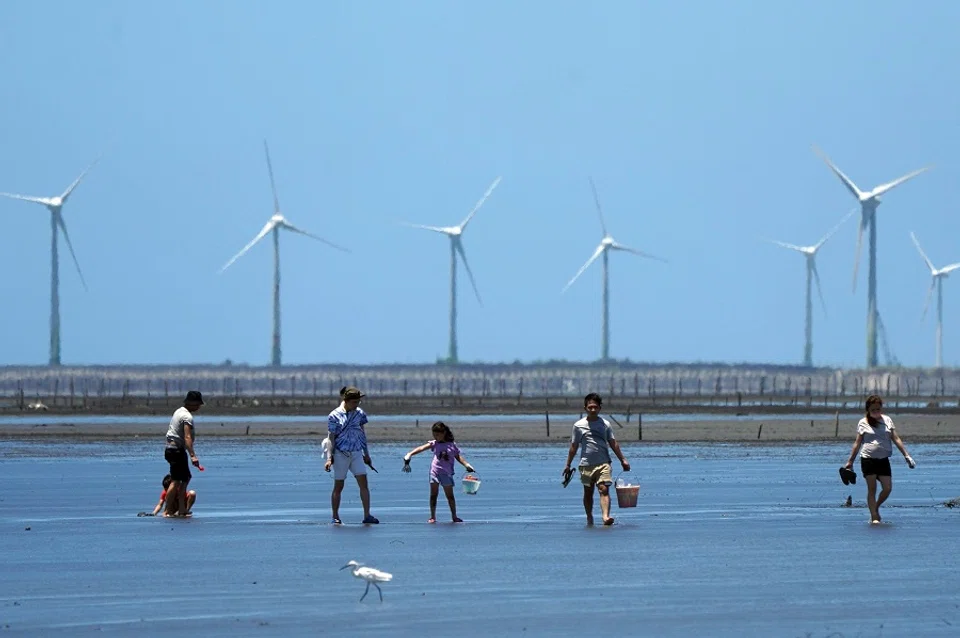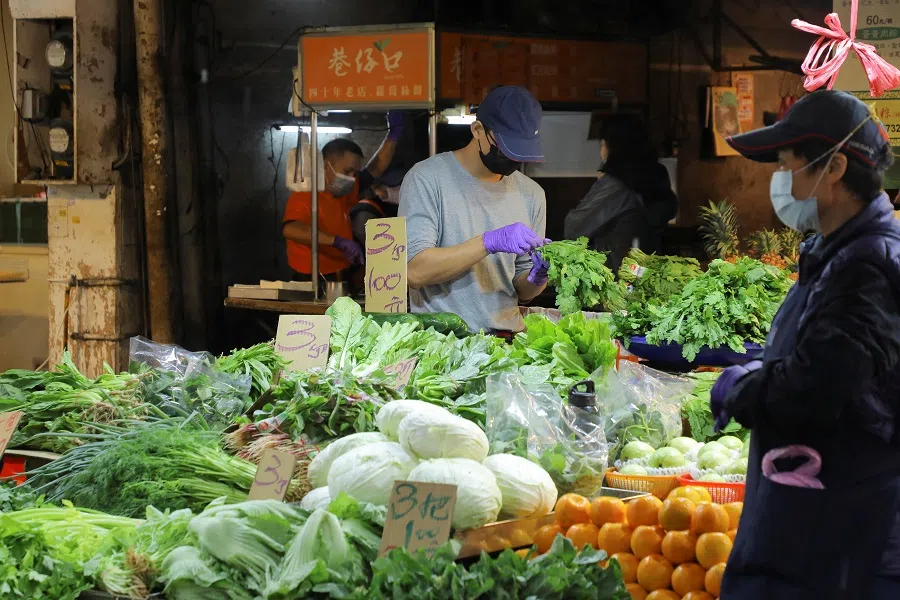The old days of eating well without a refrigerator
Have we lost more than we gained with the invention of the refrigerator? With giant fridges in each household, sometimes more than one, stuffed to the brim with frozen food and leftovers, are we eating less well now than when we had no means to store food? Chiang Hsun ponders the question.

"When I was a kid, we didn't have refrigerators," I told a few youngsters once. With pitying glances, they said, "You poor thing..."
Am I a "poor thing"? Well, maybe...
This started me on a reverie about the refrigerator.
With Taiwan being so hot and humid in summer, how did we keep our food fresh without a refrigerator?
From what I recall, Taiwan's economy in the 1950s was very different from what it is today. Families didn't have much food to eat, which meant there were little leftovers or "food waste" - usually the soup scraps stored in earthen jars which were used to feed the pigs, chickens, ducks, geese, dogs and cats. Then, dogs and cats were thin and people didn't gain weight easily either.
Recently, a friend of mine returned home after work and was greeted excitedly by her dog, Sock. But the next thing she knew, Sock suddenly had convulsions, fell to the ground and died. My friend sobbed for a few days. The vet told her it was probably due to a heart problem. But she didn't want to get a necropsy done for Sock and decided to bury it at a pet cemetery.
In my childhood, people and pets kept trim. We seldom ate out and could almost always finish all the food prepared for the day. We mostly ate vegetables fried with a little minced meat. Huge chunks of meat or a whole chicken/duck were seldom served on the dining table unless it was the festive season.

Since there were no leftovers, there seemed to be no need for a refrigerator. (Of course, such thinking hinders progress.)
The earliest "refrigerator" that I came across was not an electric one.
It was a wooden container with ice in it - what the Tong'an people called "ping-kak" (冰角, ice block). For 50 cents, the shop owner would saw me a 20 cm2 ice block and bound it in straw ropes. Water would be dripping from the ice block all the way home.
Because it didn't run on electricity, the wooden container would be better called an ice box. During the hot summer months, green bean soup, watermelon, herbal tea and sour plum drinks would be placed in the ice box to be cooled. The ice box was seldom used to store leftovers.
Ice cubes could also be made into shaved ice, which when added to various sour or sweet fruit juices made for a delectable summer treat.
Until today, I'm still not used to eating leftovers. I cook just enough and finish my food. Not leaving leftovers means less reliance on the refrigerator.
Not only did they welcome people to their home to see the refrigerator and offer them chilled mangoes and asparagus juice, they also told anyone who had leftovers to bring them over to be stored in the refrigerator because "we're one big family".
Gawking at the refrigerator
Electric refrigerators only came into the picture in the 1960s. All of us who stayed in a row of Food Agency civil servant housing only had ice boxes. But we did have a neighbour household of "Nanyang Chinese" who had one. Were they from Singapore or the Philippines? We didn't quite know. We called everyone from that region "Nanyang Chinese". For a period of time, the "electric refrigerator they imported" was a catchprase.
The refrigerator looked as austere as the White House, standing in the middle of the living room. Neighbours from a few streets away even came to peer at it, opening and closing the doors repeatedly as they gushed about how wonderful an invention it was. After plugging it in, we felt the blast of cold air and the interior was clean and bright like a crystal palace or moon palace in ancient mythology.
The refrigerator made the neighbours happy for a long time and also became the talk of the town for a period of time.

Nowadays, people rarely place the refrigerator in the living room. It's an everyday item and no longer the stuff of fairy tales.
The family was also very friendly and kind. Being the first to own a refrigerator in the community, they were happy to share it with the neighbours. Not only did they welcome people to their home to see the refrigerator and offer them chilled mangoes and asparagus juice, they also told anyone who had leftovers to bring them over to be stored in the refrigerator because "we're one big family".
For a few months, people would make a beeline for their house every evening after dinner, bringing their leftovers to be kept in the refrigerator.
It seemed as if families suddenly had a lot of leftovers. In fact, storing leftovers became somewhat of a ritual, a happy memory of a time when there weren't many forms of entertainment.
Should I go on? The refrigerator story has a not-so-nice ending...
Back then, intestinal parasites were common in children and the schools regularly sent students' stool samples to be checked by health bureau staff. Each student was given a little matchbox to collect their stool samples. After they were collected, they would be sealed in envelopes, labelled and sent to the health bureau the following day.
Someone possibly put their matchbox stool sample in the crystal palace refrigerator together with their leftovers. The deed was discovered due to the stench. Such behaviour angered the owners and they never allowed the neighbours to store their food in the refrigerator again.

The other neighbours stood up for the owners, chastising the culprit for being "unethical". The aunties spoke loudly in front of the refrigerator, perhaps intentionally trying to console the furious owners on how badly the beautiful refrigerator had been treated.
Stuffing our faces and our fridges
Around 1960, city life in Taiwan changed. People started owning refrigerators and televisions which were placed in the living room. Televisions also looked like palaces and had sliding panels. The first family to own a television invited everyone over after dinner to admire their TV. The house was filled to the brim with chairs, floor mats and a great deal of excitement. Everyone was reluctant to go home until we sang the anthem and watched the TV screen go blank save for a mysterious and dreamy light.
I don't remember the programmes I watched then - just the dreamy light on the screen, blinking as if the times were winking at me.
In the era without refrigerators, my mother made phenomenal dishes. The ingredients were fresh and neither chilled nor frozen. They were prepared in appropriate portions and there was no waste.
The refrigerator changed the way we live - without it, we didn't store a lot of food and cooked just enough to eat. We finished whatever we cooked that day and did not keep leftovers. Actually, this is a healthier way of living.
Modern people are increasingly reliant on refrigerators. Not only must it be huge, one is sometimes not enough; they need two or three of them. Animal carcasses of all kinds fill the refrigerator, kept frozen for a few months. Even after they are thawed, the meat texture will not be as good as fresh meat.
Many people love Tainan beef soup - a little bowl of thinly sliced beef boiled in broth and topped with julienned ginger. The tenderness and freshness of the meat is unforgettable. But note that the meat is tender only because it is not frozen.

In the era without refrigerators, my mother made phenomenal dishes. The ingredients were fresh and neither chilled nor frozen. They were prepared in appropriate portions and there was no waste.
Nowadays, leftovers have piled up and so has food waste. And this seems to have a cause-and-effect relationship with the fact that refrigerators have gotten bigger.
Is the refrigerator to be blamed? Or it is just the humans who have gone astray.
What's more, people don't cook at home anymore. They host their friends at a posh restaurant and always order a table full of food to exemplify their hospitality. What's left over on the table is often more than what's eaten and the leftovers get packed up and stuffed in the refrigerator in the end, unable to be cleared even after a week. Leftovers often taste different and are no longer delicious. They are also very unhealthy and result in colon and stomach cancers.
Learning the art of preservation
Is the refrigerator to be blamed? Or it is just the humans who have gone astray.
While the refrigerator has made life easier, we can choose not to rely on it or pack it with food. We can choose not to treat the refrigerator as a food waste bin and more so not treat our stomach as one as well.
After I became an artist-in-residence in Chishang, I realised that Hakka families kept jars of treasures under their beds: a 60-year-old jar of preserved radish, a 40-year-old jar of pickled olives...
When there were no refrigerators, people preserved food in various ways: curing with salt, air-drying under the shade, pickling in honey or vinegar, sun-drying, soaking in wine lees... In my childhood home, there was always a wine jar at the corner of the house. Mother brewed her own wine, made pickled vegetables and fermented bean curd, and stuffed sausages on her own. I would always see rows of chickens, ducks, ham and salted fish hung up to dry in the shade.
After I became an artist-in-residence in Chishang, I realised that Hakka families kept jars of treasures under their beds: a 60-year-old jar of preserved radish, a 40-year-old jar of pickled olives, and jars of salted vegetables, pickled bamboo shoots, fermented bean curd...

In the era without refrigerators, food preservation methods often produced rich and potent flavours.
Ten thousand years before refrigerators came into existence, food that people made from pickling and air-drying should be written into a book or handbook to prepare for the days of power outages.
This article was first published in Chinese on United Daily News as "五行 九宮 蔬食3".
Related: Taiwanese art historian: Why a mother's winter melon soup is best | Taiwanese art historian: The five elements of cooking in the olden days | Life and life lessons in the old markets of Taiwan | Taiwanese art historian: A stray cat, a farmhouse in Taiwan and a quiet afternoon | Taiwanese art historian: What my father taught me | Taiwanese art historian: My mother waited for her soldier husband to return from war, just like Wang Baochuan | In the digital age, how is humanity to save its own heart?





